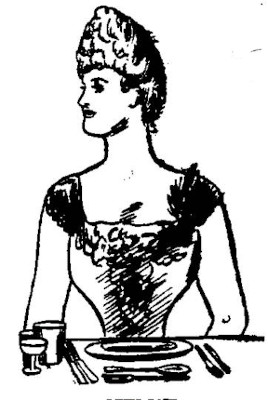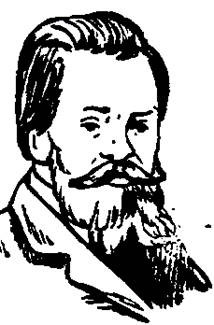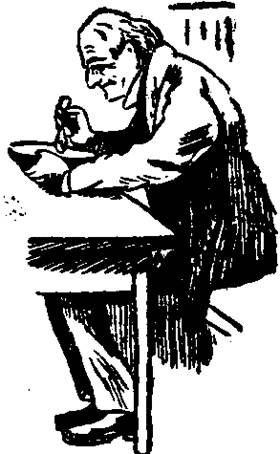This article has been transcribed from a copy of the Cardiff Times in the online collection of scanned Welsh newspapers 1804-1919 in the National Library of Wales, with grateful recognition of the free access accorded to all readers.
Explanatory Notes
Hodge is an abbreviation of the name Roger, used as a typical name for an English agricultural labourer since the 14th century.
The Savant Savarin: Jean Anthelme Brillat-Savarin (1755-1826) was a French lawyer, and politician, whose The Physiology of Taste, gained him fame as an epicure and gastronome. E. S. Dallas says of him, 'He gave to the pleasures of the table a poetry little thought of before'(Kettner's Book of the Table 1877).
'fear and trembling': Fear and Trembling (original Danish title: Frygt og Bæven) is a philosophical work by Søren Kierkegaard, published in 1843. In it Kierkegaard suggests that every attempt to use ethical theories to explain why Abraham’s faith in God was so strong that he was prepared to sacrifice his son, Isaac, ends in paradox or uncertainty.
'flat, stale, and unprofitable': Hamlet I.ii.133.
'across the walnuts and the wine, is from Tennyson, 'The Miller's Daughter', ll. 31-32: '… in after-dinner talk / Across the walnuts and the wine'.
The sum '96 minus 45' is scribbled in the margin of this article, and may be part of an editorial calculation of what the writer of this or some other column was to be paid. —— David Skilton

here was once upon a time, as the story goes, an American scientist who came to the conclusion that eating was a mere matter of habit, and, to prove his theory, he experimented on a horse. He reduced the animal's food gradually until the amount of sustenance supplied to the beast of burden was one bean a day. Then the horse died. And so did the scientist's theory. Dinners are looked upon in different ways by different men, and there are as many styles in dining as in ladies' dresses. To one man dinners are a necessity pure and simple, to another they are an artistic pleasure, to be arranged and prepared for with all the care and attention possible.

Always dines out
Which of the two men obtains the most enjoyment from his dinners is purely a matter of opinion and taste, and Hodge probably enjoys his simple fare as thoroughly as the greatest epicure his costly feast. And he is far less ]ikely to suffer from indigestion. Hodge and his compeers eat to live, while the epicureans may be said to live to eat. The Savant Savarin spent his life in cultivating the art of dining, and I have often thought that in the experimental stages of his career he must have been a man to avoid, especially if he had a weakness for inviting his friends to his feasts. Fancy a man being made the victim of a menu consisting of gastronomic experiments! The idea is appalling.
The old gentleman who, when asked by a young friend to dine with him at his club, said, 'Not if I know it, sir. Dining at your club means an hour's gorging and a week’s remorse,' had probably an extensive and unpleasant experience of restaurant cooking. In which case he had good cause for his cynical reply.

Dines Late
The man who said that matrimony and sausages required a large amount of faith for their perfect enjoyment might have added that the man of little faith was hardly likely to get through a restaurant dinner without fear and trembling.
Diners at a restaurant should never enquire as to the mysteries they are partaking of. In the art of mystery the restaurant chef is far beyond the most talented of conjurors. He can tickle your palate with something that tastes delicious, but which defies analysis. In these cases, as the poet does not say:
'Tis better to have faith galore,
Than to enquire what you eat.
In this connection it is told of a Parisian epicure that he once laid a bet that he could tell what any dish set before him was composed of.

Dines at Home
A chef was procured who sent up a most toothsome mass of matter, which the epicure tried in vain to name. It turned out to be a dish of stewed white kid gloves highly flavoured.
Which proves to a demonstration that one never knows what half one eats is composed of.
are few men who really understand the art of giving a dinner. They usually manage to make a slight error in detail which prevents the feast from being perfect. The pleasantest feeds are those where the guests are limited in number, and where the conversational powers of the diners are about equal in quality.

Dines when he can
There is nothing so depressing as a slow dinner, for though the feast be of the best, it is not enjoyed if the conversation be flat, stale, and unprofitable. A good story told at the right moment will often prevent the guests from feeling that things are not quite up to the mark.
Your story-teller is a most valuable adjunct to a dinner party, for good humour is a capital aid to digestion. Many a man has been supplied with dinners gratis from the mere fact that he was able to tell good stories.
The difference between an ordinary home dinner and a dinner where the flow of wit abounds can only be appreciated by those who are familiar with both.
It is on such occasions as these that diners, imbued and influenced by the good things gastronomic and conversational they have been supplied with, lay themselves out to be seen at their best. Each vies with his neighbour in being witty, and reminiscences, jokes, and jokers are discussed across the walnuts and the wine.
Last modified 26 April 2022